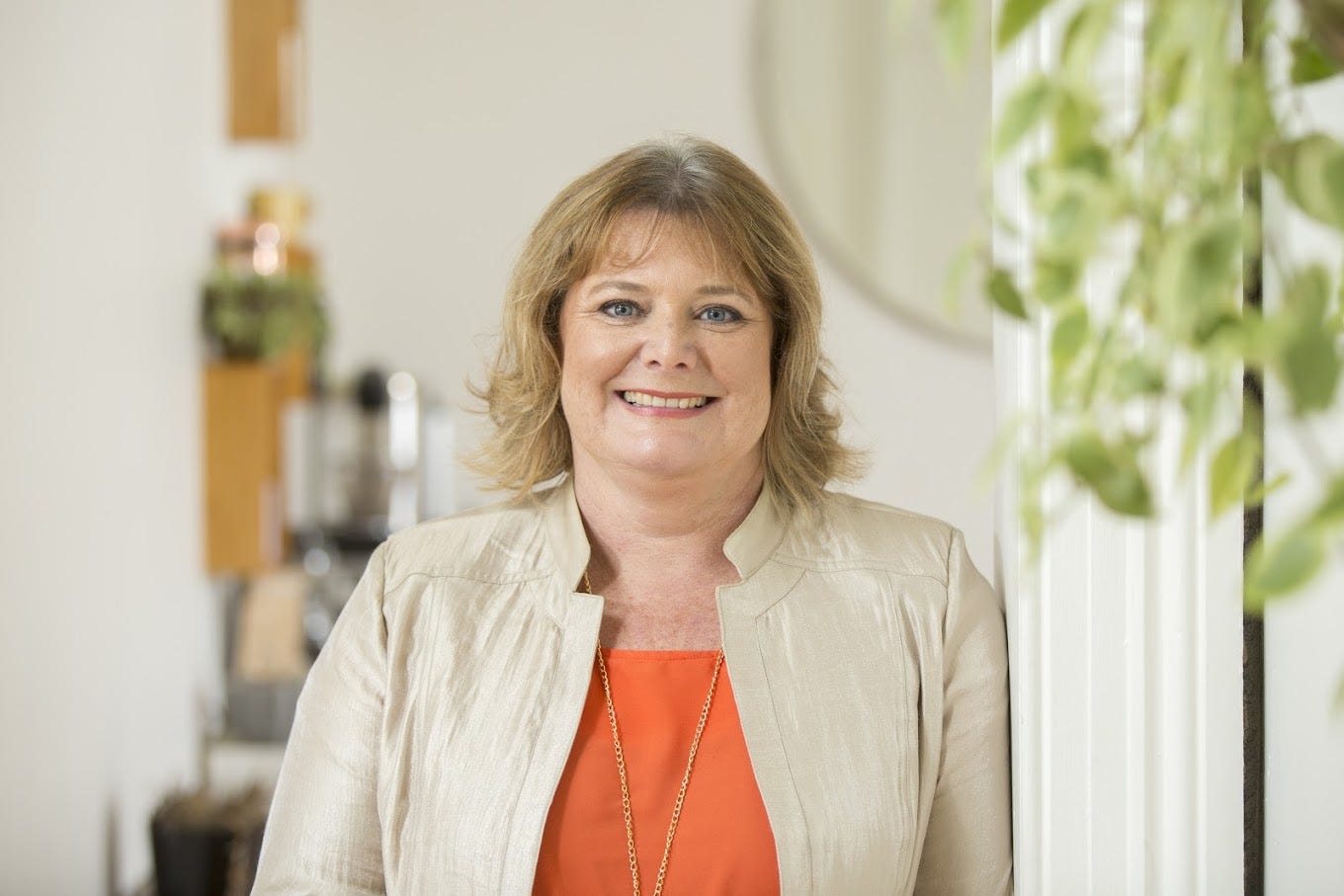Look this is indulgent of me
I already have a podcast - which is relaunching this week
(PLEASE LOOK OUT FOR CONFIDENT CONTENT THIS FRIDAY - ON ALL GOOD PODCAST PLATFORMS)
But I want to talk to small business owners and ask them questions
And I want it to be manageable. And not use my podcast editor so I have to justify the expense etc…
And do it in a way that means if I miss a week - I miss a week
So this is my new podcast, hosted right here on SUBSTACK
(And I’ll go back to my podcast closet next week - I recorded this one in my bedroom because, in all honesty, I was rushing back from planting out a bunch of zucchini and I ran out of time to set it all up properly. INSTANT regret when I heard the echos on my voice. FORGIVE ME)
I hope you enjoy this first episode! What do you think?
THE SMALL BUSINESS OWNER PODCAST: EPISODE ONE
Introduction
Welcome to the inaugural episode of The Small Business Owner Podcast. It's just me having authentic conversations with small business owners that I love talking to, about why they have their business, what they do, and what it’s like being a small business owner. Today, I’m thrilled to have Helen Laidlaw as my first guest. Helen is a business advisor, and I’m excited to dive into a discussion about her work and the unique challenges of running a business in New Zealand.
Who is Helen Laidlaw?
Helen Laidlaw is a business advisor based in New Zealand, helping business owners grow their businesses profitably. Unlike the terms business coach or consultant, Helen describes herself as a mix of both. “My goal is to get the business to be better than it was yesterday, but as a result, I also need to work with the business owner,” she explains. I find her perspective fascinating because it reflects a holistic approach, addressing both the business and the person running it.
Understanding the Role of a Business Advisor
Helen and I discussed why she identifies as a business advisor rather than a coach or consultant. While coaches typically focus on the personal development of the business owner, and consultants work on specific projects with their expertise, Helen does both. “I work mainly on the business, but to make it better, I also need to work with the owner on changing habits and mindsets,” she says. This blend of roles is what makes her approach so effective.
The New Zealand Small Business Landscape
We talked about the ease of starting a business in New Zealand, which I believe is both a blessing and a curse. It’s great that there’s such a low barrier to entry, but it also means many business owners jump in without the necessary financial literacy. Helen agreed, adding, “The low barriers to entry mean that many jump into business ownership without the necessary financial literacy.” This often leads to confusion between turnover and profit, and a lack of understanding about what makes their business truly profitable.
The Financial Literacy Gap
Helen highlighted the alarming lack of financial literacy among small business owners in New Zealand. She put it quite bluntly: “At least half of the small businesses that exist in New Zealand should not be operating as businesses; they should be employees.” This is because many business owners don’t have a clear understanding of cash flow, budgeting, and the true cost of running a business.
The Paintball Effect
Helen introduced the concept of the “paintball effect,” where business owners spend money haphazardly, trying different things without a clear strategy. “They’re not sure what works or doesn’t work, so they just spray paint everywhere,” she said. I found this analogy so spot-on because it perfectly describes the chaos that can happen when there’s no plan in place.
The Trap of Over-Ownership
We also discussed the New Zealand mindset of needing to own everything, whether it’s business assets or an office space. Helen pointed out that while ownership is great if you can afford it, leasing is often a better option for those who haven’t yet proven their business model. It’s a mindset shift that can save many small business owners from unnecessary financial strain.
Pricing and Value Perception
One of the most important topics we covered was pricing. I know this is a big challenge for many business owners. People often undercharge because they’re worried about alienating clients. Helen had some great advice here: “I encourage clients to change their pricing every year because at the end of the day, we've got CPI increase and you pay your wages. Why shouldn't you increase your prices?” It’s about understanding your value and making sure your prices reflect that.
The Importance of Asking for Help
We talked about how crucial it is for business owners to ask for help. I shared my own journey of learning to see asking for help as a strength rather than a weakness. Helen agreed, “Asking for help is a sign of strength because it's actually being wise enough to short-circuit the problem.” It’s something I think all of us, especially in New Zealand, need to remember.
Helen's Approach to Business Advising
Helen shared her approach to working with business owners. She prefers long-term relationships, where she can really get to know a business inside and out. However, she also offers project-based support for businesses that just need help with specific challenges. “If you can’t develop a relationship with me during that initial conversation, then we’re not the right fit,” she says. I love how clear and straightforward she is about this because it’s so important to find the right advisor for your business.
Final Thoughts
This conversation with Helen has been so enlightening. Having a business advisor like her, who can offer both practical guidance and emotional support, is invaluable. Helen emphasized the need for accurate financials and a clear plan, reminding us that financial literacy and planning are key to business success.
Key Takeaways
Know Your Numbers: Understanding cash flow, profit margins, and proper budgeting is crucial for any business owner.
Ask for Help: Seeking advice is a sign of strength, not weakness. It’s a smart way to avoid pitfalls and make informed decisions.
Be Strategic: Don’t try everything and hope something sticks. Have a clear goal and a plan to achieve it.
Reassess Pricing Regularly: Your prices should reflect your value and the market. Don't be afraid to adjust them as your business grows.
Think Long-Term: Building a relationship with a business advisor can provide the ongoing support you need to navigate the ups and downs of business ownership.
Get in Touch with Helen
If you’d like to connect with Helen for business advice, you can reach her at 021 548 082 or find her online by searching “Helen Laidlaw Business Advisor.”
(So… what do you think? This is a goer?)
Rachel
PS: I’m running THIS EVENT in Auckland in November - wanna come? Numbers limited.
















Share this post